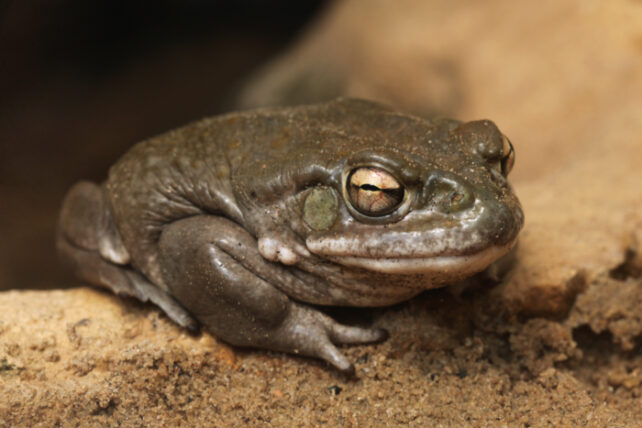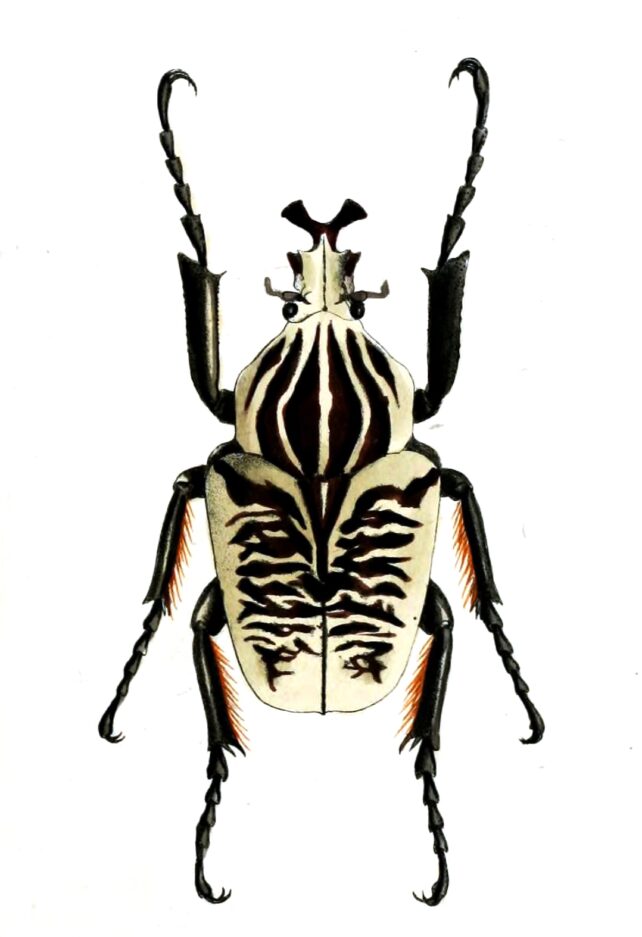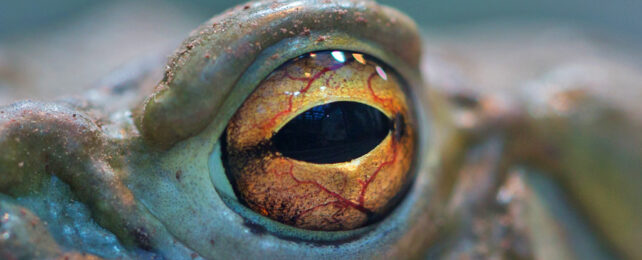Amid the human-driven ecological unraveling, the illegal wildlife trade poses one of the greatest threats to many species' continued existence. Alas, the internet has allowed this trade to flourish more easily than ever.
On top of a booming trade on the open web, new research has identified hundreds of species traded on the dark web, including the Sonoran desert toad (Incilius alvarius). Unexpectedly, this illegal trading is primarily not for pets.
"What surprised us was that the majority of species that are traded there are for their recreational drug properties," University of Adelaide ecologist Phill Cassey told the Australian Broadcasting Corporation (ABC). "Particularly for psychoactive compounds."
While 90 percent of the dark web wildlife trade consisted of plants and fungi for drug use, some animals were traded for the same purposes, such as the previously mentioned poisonous toad. The Sonoran desert toad's toxic glands contain the psychedelic 5-MeO-DMT.
"People trade these to essentially lick them," Cassey told the ABC.

University of Adelaide ecologist Oliver Stringham and colleagues searched 2 million dark web advertisements between 2014 and 2020 and discovered the trading of 153 different types of species; about 70 have known drug properties.
The most commonly traded species was Mimosa tenuiflora, a South American tree containing the powerful hallucinogen DMT.
Luckily, most drug-related species are not threatened; however, researchers found a few vulnerable species, like the psychedelic-containing peyote.
Other species are used in traditional medicines, clothing, and accessories – like reptile skin handbags – and smaller numbers are traded as pets.
The findings demonstrate that the wild animal trade on the publically viewable internet (the open web) is so poorly regulated that there's no reason for people to use the dark web – which requires special software and does not have centralized search engines – to conduct it.
"Increasingly, wildlife trade also occurs on the deep web, which consists of social media and private messaging apps," the team writes in their paper.
"Considering illegal trade occurs frequently on the open web, which is easily findable, the main cited driver of illegal trade on the internet is lack of enforcement. This means that regular surveillance and enforcement can prioritize these areas of the internet."

Environmental crimes are often perceived as 'victimless' crimes, despite having the potential to be highly damaging to public health by facilitating the spread of new diseases, not to mention threatening the existence of entire species.
So although there are laws around these crimes, enforcement is rarely prioritized, despite illegal wildlife trafficking being one of the largest transnational crimes.
"The trade of these unregulated species remains largely untracked by most countries, and the conservation status of many species remains undetermined," the researchers note. "According to recent estimates, the diversity of unregulated trade outnumbers the regulated trade by a factor of greater than 3."
Stringham and team did find some traditionally sought-after animals being traded on the dark web, such as live African gray parrots and tiger skins, as well as the occasional rarer animals, like the Goliath beetle and Japanese sea cucumber.

Unsustainable poaching of plants and animals like these drives the decline of thousands of species and has boomed on the open internet in recent years. Many of the traded species – like the extensive trade of spiders, scorpions, and other arachnids, which exceeds millions of individual animals – remain unmonitored.
"Both the loss of native species from unsustainable harvesting and the introduction of alien species contributes to the degradation of natural systems, which ultimately threatens the wellbeing of humanity," Stringham and colleagues write.
But researchers fear greater enforcement will drive the trade underground – likely shifting more of the pet trade from the open to the dark web. Curbing consumer demand, much of which comes from wealthy nations, is just as critical as greater enforcement.
Certified breeding programs for some in-demand species have also been proposed to provide those looking to acquire these animals in a way that minimizes risks to wild populations.
With our living planet so sorely needing people to connect to the world beyond humanity, pets can help to encourage this link, which greatly benefits our health – even the creepy crawly ones. But our desire to admire and cherish Earth's magnificent, strange, and adorable life should not threaten their right to exist.
"If future wildlife trade increases on the dark web we have provided a baseline to compare the composition and frequency of trade against," Stringham and team conclude.
This research was published in People and Nature.
